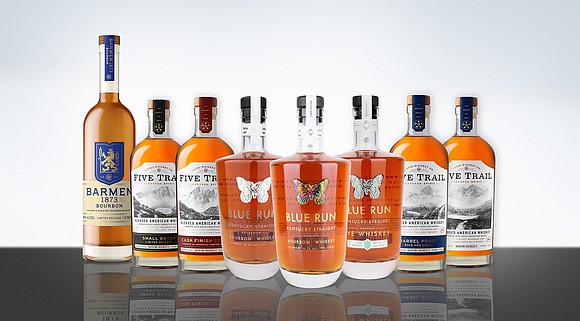As drinkers shift to spirits, Molson Coors acquires a bourbon maker
CNN/Stylemagazine.com Newswire | 8/8/2023, 2:13 p.m.

Originally Published: 08 AUG 23 08:30 ET
By Jordan Valinsky, CNN Business
New York (CNN) — A major beer company is future proofing itself on liquor.
Molson Coors, best known for brewing Coors Light and Miller Lite, is acquiring Blue Run Spirits, a cult favorite high-end bourbon and rye whiskey brand, for an undisclosed price, exclusively told to CNN. It’s part of the company’s pivot to becoming a broader beverage company focusing on drinks beyond beer, especially since US spirit sales surpassed beer sales last year for the first time ever.
Blue Run is a Kentucky-based startup that makes premium bourbon whiskeys with prices ranging from $100 to $250 for a bottle. Five people came together that have a “common love” for bourbon and created the brand in 2020, according to Blue Run CEO and cofounder Mike Montgomery, which resulted in a “groundbreaking brand” that skews younger and more diverse than typical bourbon drinkers, he said.
Some of Blue Run’s success can be attributed to co-founder Devon McKinney, who designed Nike’s Air Force One sneaker and also the whiskey and bourbon’s butterfly-adorned bottle. He emulated the sneaker “drop” culture with Blue Run, by creating buzz from releasing a limited amount of bottles for each release and generating excitement online.
“We set out to change the way whiskey is brought to market,” Montgomery told CNN. “We set out to modernize the way American whiskey looks and feels.”
He also isn’t worried about a massive company acquiring his boutique brand, saying that Molson has “vast resources” to help expand its distribution beyond the current 31 states it’s sold in and that Molson has a “commitment” to Blue Run’s high-end quality and distinctive bottle design.
For Molson, Blue Run’s buzzy presence and being profitable from the beginning was an attractive concept as it looks to grow beyond beer. It also marks Molson’s first-ever spirit acquisition. Other products in that portfolio largely consist of partnerships, including one with Coca-Cola to make Simply Spiked, an alcoholic drink inspired by the Simply brand’s fruit juice, and Topo Chico seltzers.
Molson’s Chief Marketing Officer Michelle St. Jacques told CNN that Blue Run is one of the “hottest new entrants” and what they liked about it is its “innovative approach to building a brand, which we felt like was a perfect complement to our journey of expanding beyond beer.”
Blue Run is Molson’s third whiskey and bourbon brand, which is now being housed in a new division called Coors Spirits Co. Molson previously entered the space in 2021 with the creation of Five Trail whiskey and Barmen 1873 bourbon, both of which cost less for a bottle compared to a Blue Run release.
Having all three is part of the plan to “build out a nice portfolio of brands that target different price points as well as consumer demographics,” said David Coors, the executive chair of the unit. He said the company’s been “pleased” with the sales of its first two whiskeys and bourbons.
Montgomery and Blue Run’s other four co-founders will stay with the brand. A previously announced $50 million Kentucky distillery will continue to be built and Montgomery will become vice president of Coors Spirits Co.
American whiskey is growing: Last year, sales soared 10.5% and topped $5 billion, according to data from Distilled Spirits Council of the United States. In particular, super-premium whiskeys and bourbons have grown in sales despite the economy and inflation.
Molson’s acquisition makes sense to Lisa Hawkins, DISCUS’ chief of communications and public affairs, since “cocktail culture is booming in the US and beer companies want to tap into this hot market trend.”
“Today’s beverage alcohol consumers are trading up and drinking better, not more,” she told CNN. “Beer companies recognize that consumers are seeking premium products that are authentic, high quality and have an interesting backstory, and that’s what spirits have to offer.”









